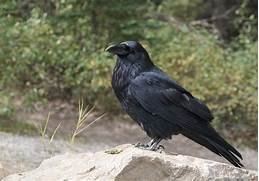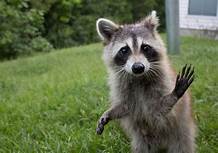Do Ravens Make Good Pets?
Ravens are intelligent and captivating birds that have been featured in mythology and folklore for centuries. Their striking appearance and complex behavior have made them popular subjects of study and admiration. However, when it comes to keeping ravens as pets, there are several important factors to consider.

Intellectual and Social Needs
Ravens are highly intelligent birds with complex social and intellectual needs. They are curious and playful creatures that require a stimulating environment to thrive. Keeping a raven as a pet requires a significant commitment of time, attention, and resources to meet its needs.
Ravens are social animals that form strong bonds with their flock members. When kept as pets, they can become deeply attached to their owners, but they may also display separation anxiety or other behavioral problems if they are not given enough attention.
Legal and Ethical Considerations
In many countries, it is illegal to keep ravens as pets without a permit or license. These regulations exist for several reasons, including the protection of wild bird populations and the welfare of the birds themselves.
Ravens are wild animals and may not be suitable for life in captivity. They have specialized dietary needs, require a large amount of space to fly and explore, and can be destructive if they are not properly cared for.
Health and Safety Concerns
Ravens can carry diseases that can be transmitted to humans, such as salmonella and E. coli. They can also be aggressive and may bite or scratch if they feel threatened. Proper precautions should be taken to protect both the bird and its owner from potential health risks.
Ravens have sharp beaks and claws that can cause serious injury if they are not handled properly. It is important to learn how to handle a raven safely and to supervise interactions between the bird and children or other pets.
Conclusion:
Keeping a raven as a pet is a significant undertaking that requires extensive knowledge, experience, and resources. It is important to carefully consider the intellectual, social, legal, ethical, health, and safety aspects of raven ownership before making a decision. In most cases, it is best to leave ravens in the wild, where they can live their natural lives.
Declaration: All article resources on this website, unless otherwise specified or labeled, are collected from online resources. If the content on this website infringes on the legitimate rights and interests of the original author, you can contact this website to delete it.






